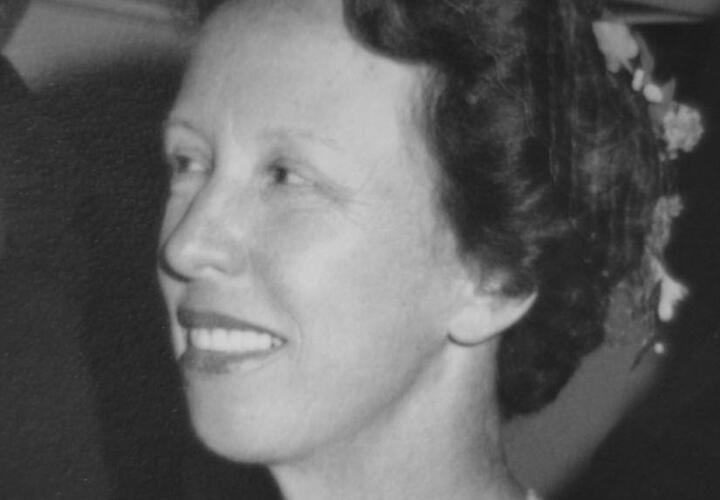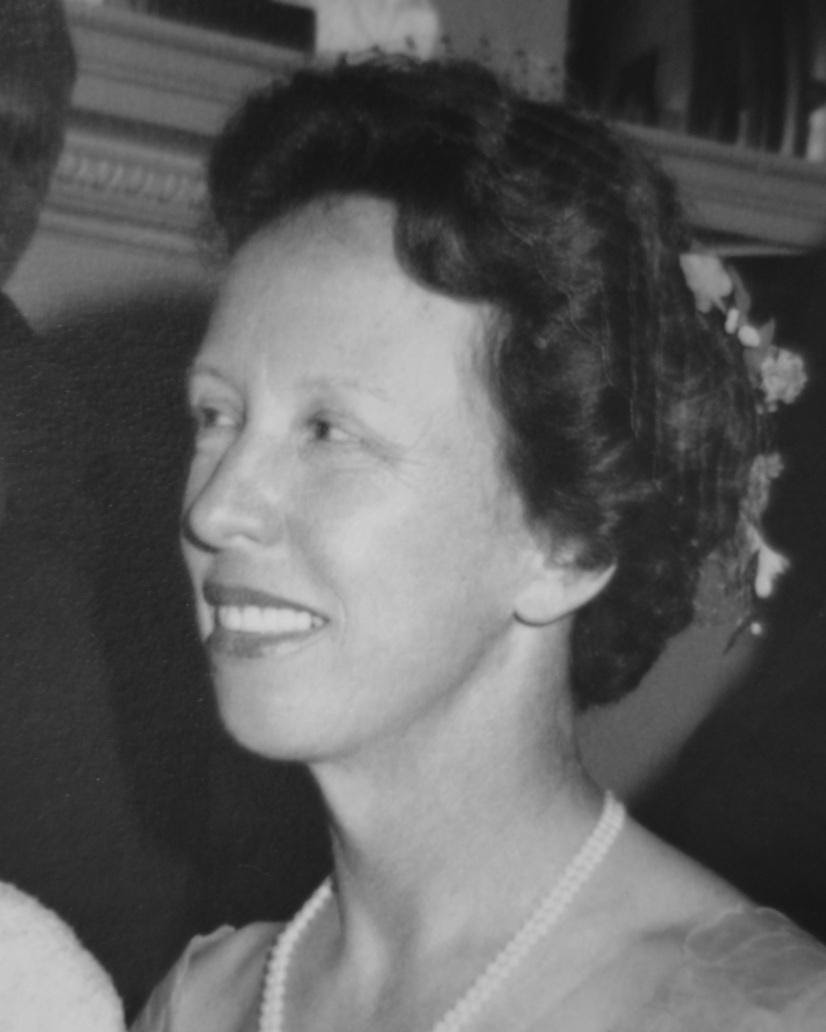Mary Reynolds' pioneering role at Yale EGC – and in literary studies

A Second Act: Honoring the legacy of Joyce scholar Mary Reynolds
In 1981, at the age of 68, Mary Reynolds published her first book, “Joyce and Dante: The Shaping Imagination,” which analyzed Dante’s influence on Joyce and cemented Reynolds’s place as a leading Joyce scholar. For her, the book was the culmination of a journey that began nearly 20 years earlier, when she pivoted towards literature after being forced out of her job at the Economic Growth Center.
By the time she joined EGC, Mary Reynolds had left her own career in academia after facing numerous setbacks based on her gender. In 1961, she was one of three women, all with PhDs and all married to Yale economics professors, hired to provide research and administrative support at the EGC. Six years later, all three were asked to leave their positions, amid new concerns about nepotism, despite the fact that all three were overqualified for their positions.

In 1967, after she was asked to leave the EGC, Mary Reynolds completed a month-long trek to the Everest base camp in Nepal with her husband, Yale economics professor Lloyd Reynolds. Photo courtesy of Priscilla Roosevelt.
While initially this was a disappointment for Reynolds, she eventually turned it into an opportunity to pursue her lifelong interest in Irish literature, and went on to build an exceptional second career for herself later in life.
Mary Trackett was born in 1913 and grew up near Milwaukee, where she attended Catholic boarding schools that first exposed her to Latin and romance languages. She further explored this interest as an undergraduate at the University of Wisconsin, winning a prize for her essay on Dante and writing a term paper on Dante’s influence on James Joyce, the same topic she would revisit nearly 60 years later in her first book.
Despite her love of literature, she majored in political science because she felt that it was more practical, graduating with honors in three years. While studying, she also worked as the department chair’s secretary to support herself and her mother.
Upon receiving her degree, her dissertation advisor told her it was a pity she was not a man, because otherwise he would have hired her.
Trackett won a Radcliffe fellowship for graduate study at Harvard, but was shocked by the discrimination against female students, as Wisconsin had been co-ed. She transferred after a year to Columbia. Two years later, she married Lloyd Reynolds, who was then teaching economics at Harvard. Mary received her PhD from Columbia in 1939, one of the first 100 women to earn a doctorate in political science.
However, she quickly encountered the barriers facing women seeking academic appointments. Upon receiving her degree, her dissertation advisor told her it was a pity she was not a man, because otherwise he would have hired her.
Eventually, Mary was hired as an adjunct instructor by the City College of New York system. For her classes, she commuted from Baltimore, when Lloyd was at Johns Hopkins, and later from New Haven when he was hired by Yale. Interspersed between these teaching contracts was a stint as an administrative assistant at the Glenn L. Martin aircraft factory during World War II.
After the war, Mary was hired full-time by Connecticut College to build out its political science department, but she resigned in 1950, when a younger man was appointed chair of the department.
“This was a terrible blow to her, because she felt that she really had given her all, and the rug was pulled out from under her,” Priscilla Roosevelt, her daughter, said.
A year later, Lloyd Reynolds became chair of Yale’s economics department. During this time, Mary helped Lloyd develop plans to strengthen the economics department, drawing on her knowledge of departmental politics from her time working as a secretary during college.
“My mother would sit with a pad of paper and my father and she would strategize the conversation that might go on with the provost, the conversation that might go on with the president,” Bruce Reynolds ’66 remembered. He described his mother as a “close collaborator” in the construction of his father’s career and the founding of the Economic Growth Center in 1961. Mary joined the EGC’s team as a research associate, tasked with setting up the Center’s library.
Around the same time, Mary also began to think differently about her lifelong love of literature. Tom Bergin, the then Head of Timothy Dwight College and Sterling Professor of Romance Languages, was a close friend and encouraged her to study Italian and reacquaint herself with the topics she had studied as an undergraduate. While still at the EGC, she published her first literary criticism, “Joyce and Nora,” in The Sewanee Review.

By the 1980s, Mary Reynolds had become known as a leading Joyce scholar and is pictured here at a Joyce conference in Trieste, Italy. Photo courtesy of Anne Skinner.
After she was asked to leave the EGC in 1967, she devoted herself to researching Irish literature and began to publish regularly. In 1973, she also started teaching a Berkeley residential college seminar on Irish literature, a class which was regularly oversubscribed. Her seminal work, “Joyce and Dante,” was published in 1981 and the same year, she curated a centenary exhibition on Joyce at the Beinecke Rare Book & Manuscript Library.
Her other contributions to Irish literature scholarship included the indices for Richard Ellmann’s monumental James Joyce and Oscar Wilde biographies, as well as support for the first translation of Joyce’s work in China.
After Lloyd retired from Yale in 1989, the Reynolds’ moved to Washington, D.C., where Mary died in 2000.
“I see my mother as a pioneer not only in her work on Joyce, but also in showing how you can do new things and re-calibrate yourself in mid-life,” Anne Skinner M.S. ’63 PhD ’65, her daughter, said.
Lisa Qian graduated from Yale in 2020 with a bachelor’s degree in economics.
EGC is publishing this series in conjunction with the 50WomenAtYale150 celebration. Between September 2019 and September 2020, Yale is commemorating the 50th anniversary of coeducation in Yale College and the 150th anniversary of women students at the university. Learn more about the initiative.